Related Research Articles
Great Brickhill is a village and civil parish in the unitary authority area of Buckinghamshire, England. It is on the border with the City of Milton Keynes, located 6 miles (9.7 km) south-east of Central Milton Keynes, and 3 miles (4.8 km) in the same direction from Fenny Stratford.

Earl of Cottenham, of Cottenham in the County of Cambridge, is a title in the Peerage of the United Kingdom. It was created in 1850 for the prominent lawyer and Whig politician Charles Pepys, 1st Baron Cottenham. ) He served as Lord Chancellor from 1836 to 1841 and from 1846 to 1850. Pepys had already been created Baron Cottenham, of Cottenham in the County of Cambridge, in 1836, and was made Viscount Crowhurst, of Crowhurst in the County of Surrey, at the same time he was given the earldom. These titles are also in the Peerage of the United Kingdom. The viscountcy is used as a courtesy title for the Earl's eldest son and heir apparent.
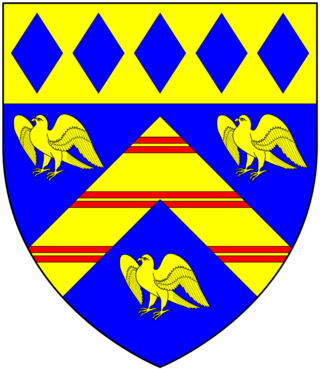
Baron Roborough, of Maristow in the County of Devon, is a title in the Peerage of the United Kingdom. It was created on 24 January 1938 for Sir Henry Lopes, 4th Baronet. He had earlier represented Grantham, Lincolnshire, in Parliament as a Conservative. The Baronetcy, of Maristow House in the County of Devon, had been created in the Baronetage of the United Kingdom on 1 November 1805 for Manasseh Masseh Lopes, a member of a wealthy family of Portuguese Jewish origin, with special remainder to his nephew Ralph Franco, son of his sister Maria. Manasseh Masseh Lopes converted to Christianity in 1802, and later represented Evesham, in Worcestershire, Barnstaple in Devon, and Westbury in Somerset, in Parliament. However, in 1819 he was twice convicted of bribing the voters in both Barnstaple and Grampound in order to be elected to Parliament, and was sentenced to imprisonment and heavy fines. He was also unseated by the House of Commons, but after his release from prison he nonetheless got elected for Westbury, a pocket borough which he controlled to a great extent.
The High Sheriff of Buckinghamshire, in common with other counties, was originally the King's representative on taxation upholding the law in Saxon times. The word Sheriff evolved from 'shire-reeve'.

There have been four baronetcies created for persons with the surname Montgomery, one in the Baronetage of Nova Scotia, one in the Baronetage of Great Britain and two in the Baronetage of the United Kingdom. One creation is extant as of 2011.
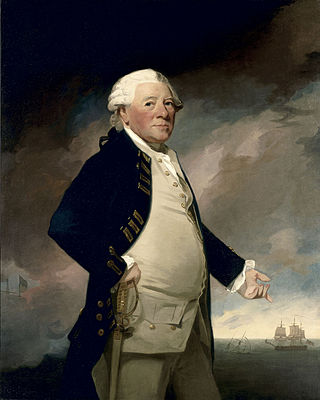
There have been seven baronetcies created for persons with the surname Parker, three in the Baronetage of England, two in the Baronetage of Great Britain and two in the Baronetage of the United Kingdom. Two of the creations are extant as of 2008. Though none of the different families of baronets were related, several supplied a number of flag officers to the Royal Navy.
There have been six baronetcies created for persons with the surname of Lawson, two in the Baronetage of England and four in the Baronetage of the United Kingdom. Two creations are extant as of 2010.
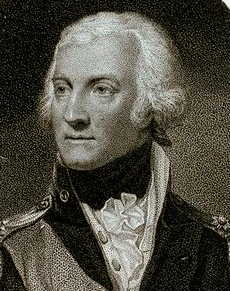
There have been two baronetcies created for persons with the surname Warren, one in the Baronetage of Great Britain and one in the Baronetage of Ireland. As of 2008 one creation is extinct while the other is dormant.

William Ernest Duncombe, 1st Earl of Feversham, known as The Lord Feversham between 1867 and 1868, was a British Conservative politician.

There have been twenty one baronetcies created for persons with the surname Williams, eight in the Baronetage of England, three in the Baronetage of Great Britain and ten in the Baronetage of the United Kingdom. Only six of the creations are extant as of 2017.
There have been seven baronetcies created for persons with the surname Thompson, one in the Baronetage of England, one in the Baronetage of Great Britain and five in the Baronetage of the United Kingdom. Three of the creations are extinct while four are extant. See also Thomson baronets and Meysey-Thompson baronets.
The Miles Baronetcy, of Leigh Court in the County of Somerset, is a title in the Baronetage of the United Kingdom. It was created on 19 April 1859 for the banker and Conservative politician William Miles. His son, the second Baronet, was also a banker and Conservative politician. The family's bank, founded in 1750, eventually became part of NatWest.
There have been four baronetcies created for persons with the surname Preston, two in the Baronetage of Nova Scotia, one in the Baronetage of England and another in the Baronetage of the United Kingdom.
There have been two baronetcies created for persons with the surname Mackworth, one in the Baronetage of England and one in the Baronetage of Great Britain. One creation is extant as of 2008.

The Wombwell Baronetcy, of Wombwell in the County of York, is a title in the Baronetage of Great Britain. It was created on 26 August 1778 for George Wombwell, Chairman of the Honourable East India Company and Member of Parliament for Huntingdon. The fourth Baronet fought in the Crimean War and took part in the Charge of the Light Brigade and in 1861 served as High Sheriff of Yorkshire. As of 13 June 2007 the presumed seventh and present Baronet had not successfully proven his succession to the title, and is therefore not on the Official Roll of the Baronetage, with the baronetcy considered dormant since 1977.
There have been four baronetcies created for persons with the surname Dundas, one in the Baronetage of Great Britain and three in the Baronetage of the United Kingdom. One creation is extant as of 2008.
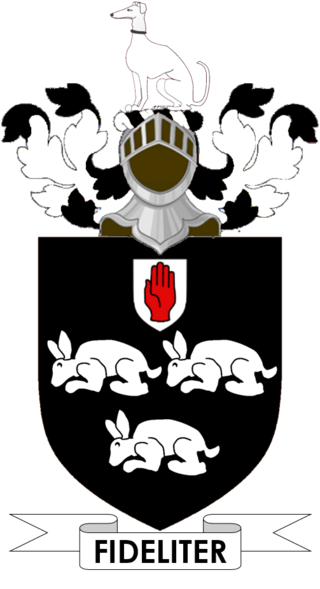
The Cunliffe Baronetcy, of Liverpool in the County of Lancaster, is a title in the Baronetage of Great Britain. It was created on 26 March 1759 for Sir Ellis Cunliffe, a slave trader and Member of Parliament for Liverpool. The fourth Baronet was a General in the Bengal Army. The fifth Baronet represented Flint Boroughs and Denbigh Boroughs in the House of Commons.

The Legard Baronetcy, of Ganton in the County of York, is a title in the Baronetage of England. Since 1959, the family seat has been Scampston Hall, in Malton, North Yorkshire.
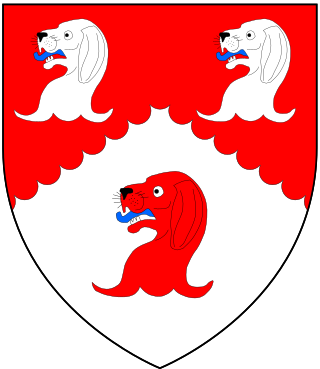
There have been two baronetcies created for persons with the surname Duncombe, one in the Baronetage of England and one in the Baronetage of the United Kingdom. Both creations are extinct.
Lieutenant-Colonel Charles Drake Garrard, born Charles Drake was a British land-owner and Member of Parliament for Amersham between 1796 and 1805.
References
- Kidd, Charles & Williamson, David (editors). Debrett's Peerage and Baronetage (1990 edition). New York: St Martin's Press, 1990, [ page needed ]
- Leigh Rayment's list of baronets